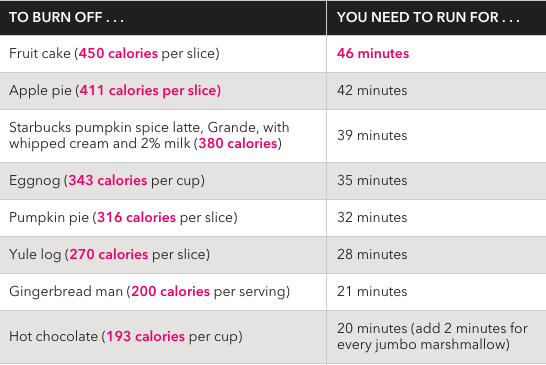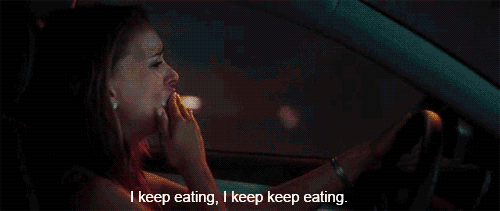One slice turns into another…and another…and another… Soon, almost the entire pie is gone and you’re not even sure if you want to eat it anymore. But you can’t leave it uneaten; you might as well finish it all. So you eat that last slice straight from the pan with your fingers, because why not?
Overeating is something that happens all too often during the holidays, but there’s a difference between binging and overeating. Overeating is having dessert after Thanksgiving dinner, knowing that you’re already full. Binging is the situation described above, eating an entire pie in one sitting. Both can be dangerous, and both are eating habits that sound easy to avoid but in fact, are much more difficult than it seems.
The approach of holiday season means the onset of articles telling you how many miles you have to run to burn off a cookie, which basically makes you not want to eat ever again. There are articles telling you to avoid eating this or that and articles telling you exactly how many calories to cut out in order to compensate for the inevitable holiday weight gain.

Source: PopSugar Fitness
It seems like good advice- after all, I regularly click on them, curious to see what they say. But it’s articles like this that facilitate binge eating. By depriving yourself and focusing on calories burned vs. calories consumed, you’re only stressing yourself out. At that point, you’re not seeing food as food, you’re seeing it as numbers (calories in, calories out). Diets don’t really work; rather, the focus should be on mindful and intuitive eating. The bottom line is this- eat when you’re hungry, stop when you’re full.
It’s easier than it sounds.
There are so many situational factors that come into play, from stress to social events to family encouragement. For me, it was the availability of food. Coming home from college, I found that I missed homemade food so much that I ate as much of it as possible, knowing that I wouldn’t be able to have again once I went back to school. I’ve always been an emotional eater as well, finishing bars of chocolate and way too many servings of nuts in a couple of sittings. For many college students, stress is the main cause of unhealthy eating habits. It’s identifying these factors that help you figure out why you’re binging or overeating, and that’s the first step to stopping.
The key, though, is moderation. By not restricting what you eat, you’ll find that you have a newfound freedom. Instead of making pie a forbidden food, make it what it is- a dessert. And with that, you won’t feel guilty for having a slice and won’t spiral into finishing the entire pie.
Kristy Miller of Refinery 29 had a way of looking at Thanksgiving dinner that truly sums up her thoughts on intuitive eating: Thanksgiving dinner is just a dinner. You can have stuffing in January if you want. You can have pumpkin pie in February. If you don’t stuff yourself because you think this is the one and only time you’ll eat this food in awhile, then you won’t overeat. And even if you do, she tells you not to worry. There’s no use in feeling excessive guilt over it. Everyone overeats once in awhile.
It’s important to differentiate between overeating and binging, however. Overeating can be solved by mindful eating; binging, on the other hand, takes much more effort to control. Binge eating is considered a type of eating disorder and is usually associated with bulimia nervosa.
Some of us think of bulimia as just sticking your finger down your throat to rid yourself of the food you just ate, but in reality, bulimia comes in many different forms. Following a binge, some weight-prevention behaviors include fasting, excessive exercising, and the use of laxatives. According to the Ontario Health Survey, only 1/5 said vomiting was their preferred method; most said that they exercised excessively or went on a strict diet post-binge.
If any of these binge behaviors sound like you, don’t be afraid to reach out and talk about it, whether it’s to a family member, friend, or therapist. They’ll understand and support you, no matter what, and will help you find your way to a healthy relationship with food. Living with an eating disorder isn’t easy, but the first step to recovery is identifying the problem.







